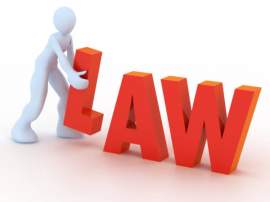
Overview of the Department of Juvenile Justice Programs

While juvenile justice by name is child-oriented, this does not mean that the care of child suspects and juvenile delinquents should come at the expense of the rest of the State. Thus, a Department of Juvenile Justice is bound to place the safety of the public on a par with the welfare of the child and include the protection of both populations as points of paramount importance in their official missions. Besides, just within the spectrum of juvenile justice, enforcement of the laws should obviously not come at the expense of the child. State departments are committed to delinquency prevention as well as delinquency detention and want to see children grow into self-sufficient adults.
That said, a State Department of Juvenile Justice is certainly in charge of administering the law and any functions subsequent to adjudication. In all, juvenile justice departments are responsible for processing complaints against offenders from the public, taking children into temporary custody in anticipation of court proceedings, overseeing first appearances (notification of charges), adjudication and disposition hearings (deciding what to do with the guilty child), and committing to a plan of action for the child moving forward, such as youth detention, probation, or supervised residence.
Yet in meeting those goals stated in its list of values, it is critical to a Department of Juvenile Justice to not only be proactive in regards to delinquency prevention, but to engage the community in doing so. A State Department will be the organizer, or if not taking the lead, at least a sponsor of community juvenile crime prevention councils. Though these programs are part of a self-interested motivation to reduce the burdens on State juvenile justice departments, these burdens are often considerable ones. More than this, though, these actions reflect genuine concerns for the welfare of states’ underage residents and the survival of families, which are realistically closely related.
NEXT: What Are The Implications of Indictment





















